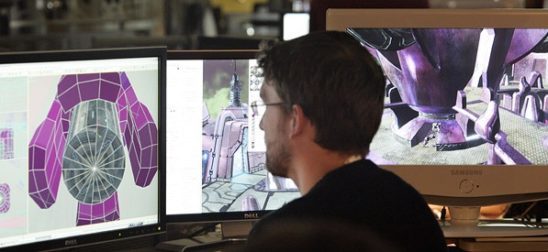This series is turning out to be longer than I initially anticipated. In the first three posts I looked at the following possible reasons for online learning:
- Ontario’s strategy to use online learning to ease pressure on high schools
- using online learning to reduce the cost of higher education
- using online education to support disadvantaged students: no online learner left behind.
In this post I want to look at a fourth justification: developing the skills that students will need in a digital society.
The needs of a digital society
Prediction is always difficult (especially about the future!) but usually the big trends in the future can already be seen in the present. The future will merely magnify these current conditions, or current conditions will result in a transformation that we can see coming but is not here yet. Examples are many:
- the Internet of Things where almost everything is digitally connected
- autonomous vehicles and transportation
- massive amounts of data about our personal lives being collected and analysed to anticipate/predict/influence our future behaviour
- automation replacing and/or transforming human work and leisure
- state agencies and/or commercial oligopolies controlling access to and use of data
- lack of transparency and corruption of messaging in digital communications.
One thing is clear. We can either as individuals throw up our hands and leave all these developments to either state or commercial entities to manage in their own interests, or we can try to prepare ourselves so that we can influence or even control how these developments are managed, for the greater good.
This is what I mean when I talk about developing 21st century skills, or preparing for a digital society. We have a responsibility for ensuring our students are educated sufficiently so that they understand these issues and have the means by which to address them. This is a responsibility of every educator, because it affects all areas of knowledge.
For instance the science professor needs to instill in her students an ability to identify reliable and unreliable sources of scientific data, and an ability to apply that knowledge in ethical ways that benefit mankind. This is a particularly important responsibility for those teaching computer sciences. We need to teach about the dangers of unintended or unknown consequences of artificial intelligence applications and of automated analyses of mass data, potential biases in algorithms, and the need to audit and adjust automated procedures to avoid unforeseen but harmful consequences before they do damage.
Digital (rather than purely online) learning has a critical role to play, because in order to develop these skills our students’ learning itself needs to be digitally embedded. Only by mastering technology can we control it.
The special role of digital learning
I have written elsewhere about the need to develop ‘soft’ skills in our students (see here for instance). These skills though need to be embedded within the application of digital technologies: heading off or solving problems arising from automation, critically analysing the role and impact of technology applications, communicating ideas and applications to others.
As a result we need to identify those digital skills that are relevant within each subject domain, be clear on how to teach or to create learning environments that enable students to develop and practice such skills, and to develop authentic means of assessing the progress of students in the development of such skills.
These are essentially curriculum and pedagogical issues. It means rethinking not only the curriculum and how we teach it, but also the role that technology can play in developing such skills. How can technology increase empathy and understanding (for example, through creating virtual environments or simulations where students play the role of others)? How can technology be used to provide scenarios that enable skills development and testing in a safe environment? How can technology be used to enable students to solve real world problems?
There are a million possible answers to such questions and they need to be answered by instructors and teachers – and by learners – with deep understanding of their subject matter. But subject knowledge alone is not enough if we are to make the last three quarters of the 21st century a time when all people can thrive and feel free.
Digital learning, controlled by passionate and caring teachers and students, has an essential role to play in moving towards that nirvana. We need to start now on developing the curricula and pedagogies that will make that possible and digital learning will need to be an essential component.
Up next
Positively the last post in this series where I will summarise the different purposes of online and digital learning and will suggest my own priorities.










 Dr. Tony Bates is the author of eleven books in the field of online learning and distance education. He has provided consulting services specializing in training in the planning and management of online learning and distance education, working with over 40 organizations in 25 countries. Tony is a Research Associate with Contact North | Contact Nord, Ontario’s Distance Education & Training Network.
Dr. Tony Bates is the author of eleven books in the field of online learning and distance education. He has provided consulting services specializing in training in the planning and management of online learning and distance education, working with over 40 organizations in 25 countries. Tony is a Research Associate with Contact North | Contact Nord, Ontario’s Distance Education & Training Network.

